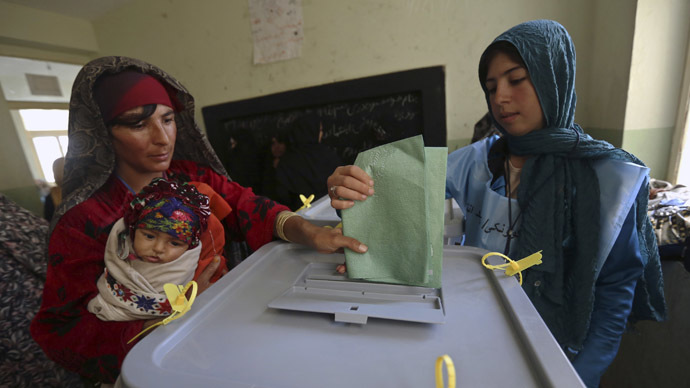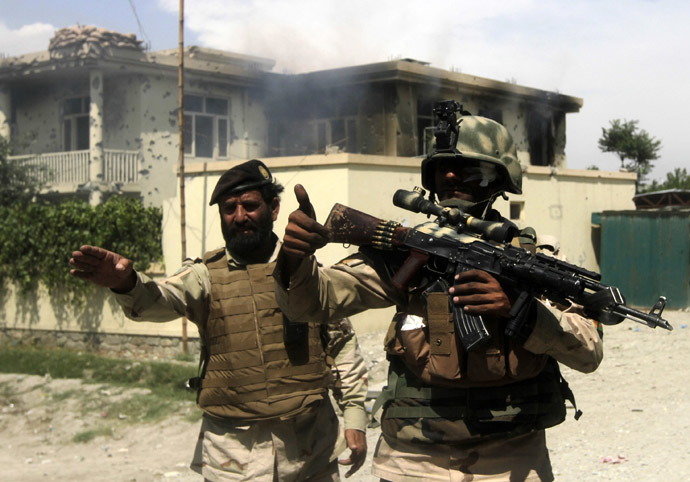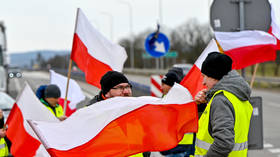‘Survival of new Afghan leadership still depends on answering America’s needs’

Whichever presidential candidate wins the Afghan election runoffs is likely to hold closely to America's script, especially in terms of the US-Afghan security pact, former US foreign service employee Peter van Buren told RT.
RT:One of the main objectives of the US in Afghanistan was to oust the Taliban. But they're still there. What do you think about that?
Peter van Buren: It’s obvious after 13 years of war that America’s secondary goal - the primary goal was to chase Al-Qaeda out of Afghanistan and that took several years, it’s unclear how successful that was - was then to oust the Taliban from Afghanistan. Well, 13 years later the Taliban is still there and who is leaving? America.
RT:The government of Hamid Karzai was believed to be a puppet of the US. Is that likely to change after Afghanistan picks a new President?
PB: Karzai was likely a puppet for a period of time and will remain something of a puppet. But lately he has been getting a little bit cranky, the strings maybe a little bit too tight controlling him. Either of the two men who are in the Afghan election runoff are very likely to hold very closely to America's script. Their funding and perhaps their survival depends on answering America’s needs, primarily permission to leave American troops in some sort in Afghanistan indefinitely.
RT:As US troops leave Afghanistan, Washington is still promising to help rebuild the country by handing over billions of dollars. Where does this money go?
PB: I wrote a book about the waste and fraud in Iraq for the reconstruction, and I think we can see clearly that reconstruction failed and the results have been tragic. Afghanistan has consumed even more American tax payer money. Billions, perhaps trillions of dollars have been spent building roads, bridges, schools all across Afghanistan, almost none of which survived more than one winter. The money was wasted as if they threw water on the ground and watch it disappearing into the dirt.
RT:In your opinion, will the Taliban try to retake control of Afghanistan after the US pulls out?
PB: I think the word ‘control’ is a difficult one to define. The Taliban already do control large portions of Afghanistan, and the question really is whether they will be content to control that part of the country for whatever purposes they deem fit, or whether they will continue to encroach on larger cities. It is easy to defend a big city, to defend a military base, it is a small finite area. And the Taliban will have to weigh its options about whether or not to expand their influence or simply continue to occupy large swaths of the Afghan countryside.

RT:Drug production is booming in Afghanistan. Does this mean America failed to keep the warlords out of power?
PB: The list of things that America failed to do in Afghanistan is very long and certainly includes any efforts to diminish or eliminate drug production. The US found itself constantly plagued by short-term thinking, which often resulted in pairing and partnering with war lords who funded themselves through drug trafficking, who funded themselves through growing poppies and used the international connections with the US establishment to bring material into Afghanistan as a pipeline to take this material out - in this case drugs that have infiltrated the world and spread heroin across the US.
RT:It is now more than a decade since America invaded Afghanistan. Are there any positive changes inside the country?
PB: It is difficult to define positive change at this point. Certainly the questionable sustainability of a limited change that has occurred - there are more schools, there are more young women who attend schools, for example - looms large. After 13 years and billions, if not trillions, of dollars you would expect something more than transient change or temporary solutions. The answer will be written over the next few years as it was in Iraq. What happened in Afghanistan becomes very clear and America’s inability to change, to succeed, to accomplish its goals becomes so black-and-white that is cannot be ignored.
RT:How do you think, is there a democratic future for Afghanistan?
PB: No, there is not. And I think we simply need to look at America’s other failed attempts at nation building. Iraq looms large but take a look at what is going on in Libya, in other parts of the Middle East. No, there will be no democracy.
The statements, views and opinions expressed in this column are solely those of the author and do not necessarily represent those of RT.
The statements, views and opinions expressed in this column are solely those of the author and do not necessarily represent those of RT.












